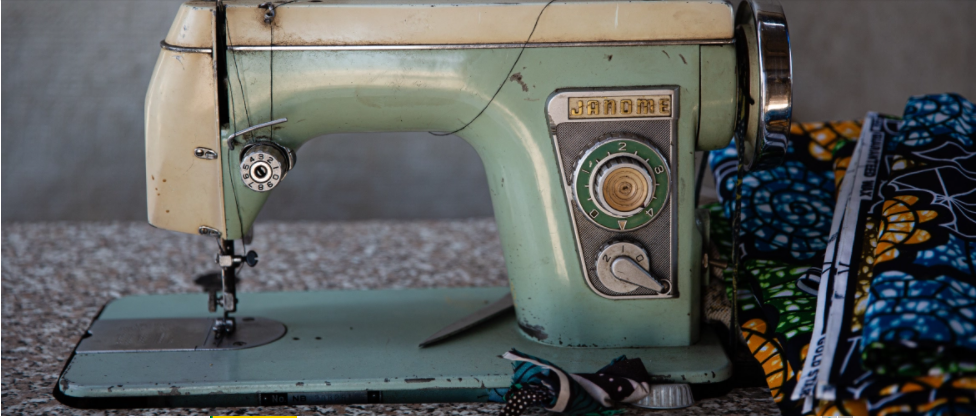Something is startling about fashion in Nigeria; there is a rich history behind it and more than meets the eye.
For example, the fashion industry in the northeastern part of Nigeria is a haven that shields women and helps them overcome the trauma of war that has dogged the region for many years.
Northeastern Nigeria is characterized by a vast internally displaced persons (IDPs) camp – Dalori camp in Maiduguri – running for kilometers with no end in sight. The camp’s topography is flat with a thick coating of sand on which an alley of tiny huts stands.
Also read: 5 Nigerian Fashion Designers Who Have Dressed International Celebrities
Life is difficult here moreso since the outbreak of the Covid-19 pandemic that robbed people’s lives and worst of all, the spirit to keep fighting hoping to one day get off the sprawling, choking Dalori camp whose only reminder is pain and never-ending anguish.
In many of these huts, women are busy behind sewing machines with fabrics lying on the floor ready to make beautiful garments which the pride of this highly volatile region.

A sewing machine Dalori Camp, northeastern Nigeria. [Photo: Al Jazeera]
Tailors are a powerful statement in northeastern Nigeria because they help run the economy by selling their works and take care of their families. Most of them were displaced from their homes and ran off to the camp after surviving torturous armed gangs that leftover two million people died in the war involving the Nigeria military who battled the armed militia groups.

Hawa Bakarm, a tailor in Dalori Camp, northeastern Nigeria. [Photo: Al Jazeera]
Tailoring for them, is the silver lining, at least when they are in the camp. You would be mistaken to think that their designs are inferior premised on where they love but the outfits tailored here are a masterpiece worth a spectacle on the runway.
One of the respected tailors who is a fashion designer by her standards in this part of Nigeria is Aisha who told Al Jazeera that sacrifice is everything she can talk of her tailoring business in Dalori camp. Aisha is in her late 20s now.
Also read: The Kaba And Slit Fashion Dresses In Ghana
Here, Aisha and her colleagues only sew on order which in most cases comes from a wedding to be – it is not all doom and gloom here in Dalori camp though the reality on the ground has taken away every iota of the happiness that once was.

Aisha, a tailor in Dalori Camp, northeastern Nigeria. [Photo: Al Jazeera]
Collection of firewood and selling isn’t as easy as it sounds. It is a daunting and risky affair in this part of Nigeria. Every day, a wedding dress calls for the collection of firewood for a while which is later sold and the money saved until a time that it is enough to purchase the fabric.
Also read: Fashion On Africa; The Best Fashion Wear And Style In Tunisia
In some cases, they will only show up with the fabric a day before the wedding but Aisha and her fellow tailors never disappoint; they sacrifice their time to meet the tight deadline. At the end of the day, they are all proud; the wedding can finally be attended and some coins are earned. This is the cycle of life in the Dalori camp.
Every time Muslim holidays near, Aisha’s tailoring shop is a beehive of activities as orders come in fast and furious.








